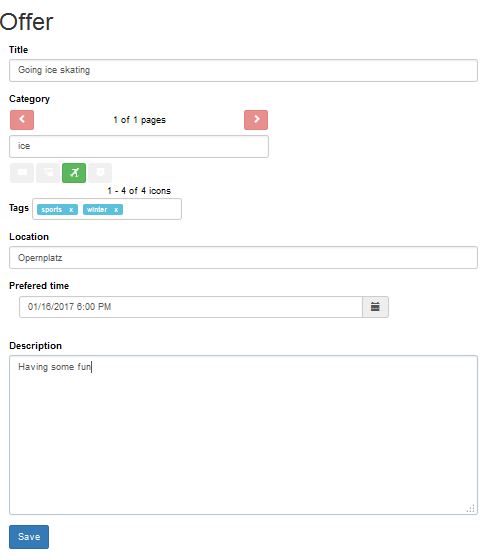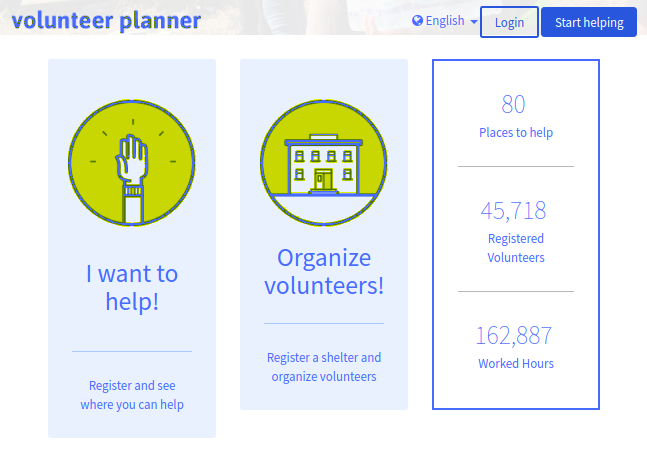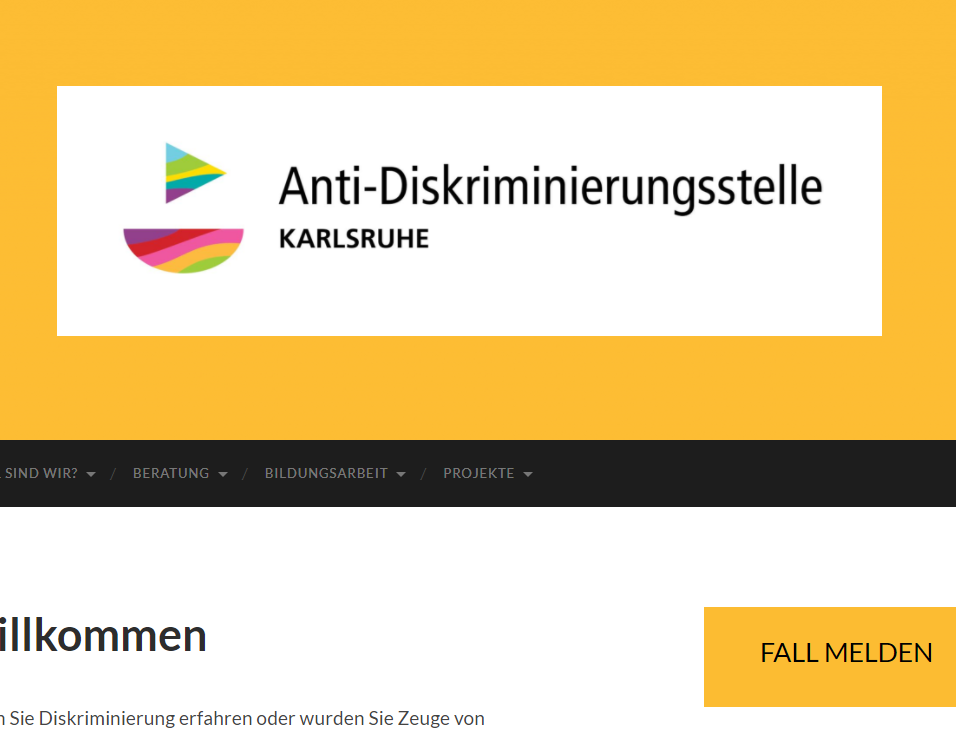Digital Refugee Labs
Four labs from the Code for Germany network will focus on migration and asylum this year. As 'Digital Refugee Labs' we want to bring together interdisciplinary teams that use digital tools and creative approaches to help civil society organizations, institutions, and initiatives with their daily work. The labs will provide tech coaching and digital tools to support existing initiatives, as well as further develop tech projects. The goal is to scale up the cooperation between tech-savvy communities, volunteers, refugees and public administrations. The project is funded by the Federal Agency for Political Education.
To kick off the project, each of the four cities will host a workshop, to which local initiatives and networks, refugees and people with the relevant skills in design, web interface and programming are invited. The workshops serve to connect actors, to identify problems and to develop prototypes. The work of the labs takes a user- and problem-centered approach, and focuses on the further development and pooling of existing tech projects. The resulting teams will continue working on the implementation of concepts and solutions in the following months.
DRL Projekte
FAQ
A number of initiatives and projects were launched in recent months to aid refugees arriving in Germany as well as civil society organizations that provide them with the basic necessities. Helpers and refugees have already received support in coordinating volunteers, donations and initiatives from the tech community, for example from the Refugee Hackathons, the Freifunk Initiative, and the Volunteer Planner. We want to make sure that those in need of help will continue to be heard both by experienced organizations and the tech community in 2016.
To develop effective tools and provide technical assistance, it takes more than isolated events. It takes an open space for exchange, for meetings and trainings, as well as new formats that appeal to different initiatives. Digital Refugee Labs aims to create these spaces and formats.
We want to use technology where it is needed most. Digital Refugee Labs focuses on the further development of existing initiatives. Websites like metacollect show how many great projects already exist in this area and need help. We want to build on these projects and also join forces with other civil society organizations to provide technical assistance in their daily work.
We do not regard digital applications and technologies as a cure-all answer. For us software is a tool that can help make certain tasks easier. It is explicitly not our goal to develop a new go-to app for refugees; we strive to develop solutions for concrete problems. We think that redundancy is a major concern, and therefore encourage redeployment where we can. The needs of the users lie at the center of our work, because usefulness is more important to us than shininess. We want to create open spaces for exchange and collaboration, where people from different areas can meet and work together.
We cannot offer technical solutions to all social problems, but we do believe that we can make the work of those who dedicate themselves to those challenges a little easier.
The Digital Refugee Labs are part of the Code for Germany program of the Open Knowledge Foundation Germany. Code for Germany is a civic tech network of volunteers that use their skills in software development, design, urban planning, and communication to improve their cities and neighborhoods. Four of the 25 OK Labs will dedicate their time to Digital Refugee Labs from May to October this year. The project is funded by the Federal Agency for Political Education as part of the "Flight and Asylum" program.
The labs will take place in the cities of Berlin, Hamburg, Leipzig/Dresden, and Karlsruhe in the period from May to October 2016. To kick off the event, we are organising workshops with interested parties in each city. Civil society organizations, developers, and interested citizens are welcome to register on this page.


